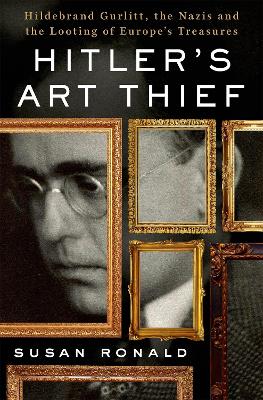
MurderByDeath
Written on Nov 9, 2016
I'm pretty sure my picking this up was a coincidence of timing, but it might have been Freudian - who knows?
Either way it was a massive disappointment. The inside flap begins:
The sensational story of a cache of masterpieces that vanished during the Nazi terror—a bizarre tale of secret deals and the search for truth featured on the front page of the New York Times.
Well, the discovery of the cache was sensational, but the discovery of said cache was only the last two chapters of the book and the first half, the first 16 chapters all took place before WWII - in fact the book starts prior to WW1.
I don't know why I didn't DNF the book; it was, in reality, not meant for the average reader with a fair-to-middling knowledge of history. Ronald had to have meant this for the serious history buffs and true academics with a solid familiarisation of most, if not all, of the players. She threw so many names at the reader, and wrote so ponderously, it was almost impossible to come away with anything resembling comprehension without a lot of effort. Sentences that should have been clear were convoluted; Ronald would mention several names and then throw pronouns around willy-nilly so I never quite knew who she was talking about at any given moment.
While I didn't care at all about why Hildebrand and his son 'became' the men they did, (which made up all of the first half of the book and a chunk of the second), once the Nazi's took over Germany and Hildebrand's weakness of character and larcenous heart were allowed free reign, the book became gripping and almost un-put-downable. Still ponderously written, but fascinating. The second half saved this book. The last two chapters were why I bought the book in the first place and I'm left irritated that the author wasted so much paper when she could have been using it to expand on Cornelius and what Germany is doing (and not doing) with all the great works found in his apartment.
So while a true historian might find this to be a satisfying, well-researched read (and it is meticulously researched), I was left with the feeling that Susan Ronald embedded a magazine article into a monstrous pile of extraneous history in order to justify calling it a book.
